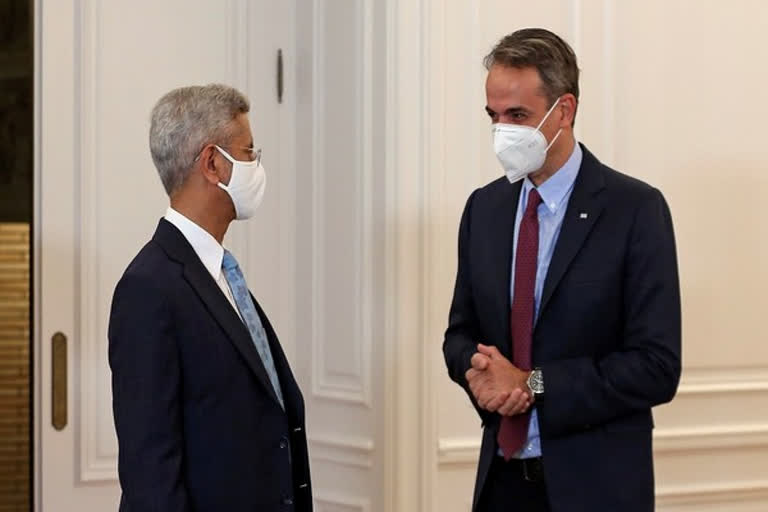New Delhi:In the historical context, India and Greece—both cradles of civilization—are no strangers. Besides trade and cultural ties and the barter of ideas, the political interaction was established on a firm footing when Alexander the Great and King Porus had their legendary exchange that made friends out of foes in 326 BC. In 2020, the India-Greece relationship scaled new heights with cooperation in the universal fight against the scourge of COVID 19.
To keep the friendship going and climb even greater peaks, a three-day visit by External Affairs Minister S Jaishankar—the first one by an Indian foreign minister in the last 18 years—that began from Friday is one that is laden with overtones of strategic intent. An MEA press release said on Saturday: “Both sides noted with satisfaction the convergence of each other’s vision for a free, open, inclusive and cooperative Indo-Pacific ensuring connectivity and growth for all in the region.” The release also added that recent developments “pertaining to the Eastern Mediterranean, Cyprus and Libya were also discussed”.
Greece faces an increasingly belligerent Turkey on its east that is trying its utmost to regain the prominence it once had including handling the reins of the Muslim world. Turkey’s fervent desire is also evident in the domineering roles it had recently played in the conflicts in Libya where it sneered off a German-brokered peace deal as also its partisan support to Azerbaijan against Armenia by standing up to Russia over the vexed Nagorno-Karabakh issue.
Read: Jaishankar refuses to indulge in 'political politics' of Rahul Gandhi during US visit
